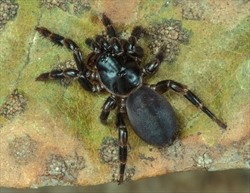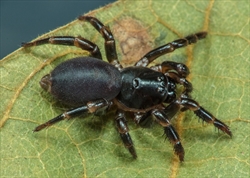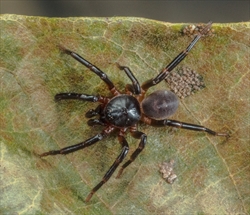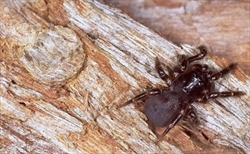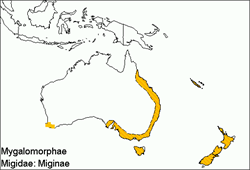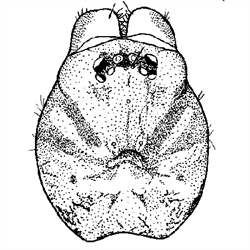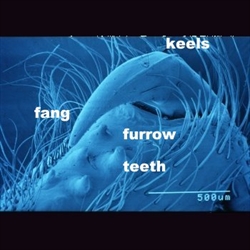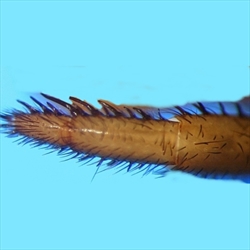Western Australia, Queensland, New South Wales, Victoria, South Australia, Tasmania, Norfolk Island, New Zealand (Fig. 5).
Fact Sheet
Migidae: Miginae
Tropical rainforest, temperate rainforest, open eucalyptus forest.
(Fig. 6) Caput of females gently raised, higher than thoracic portion; fovea of females recurved, T- or M-shaped.
Eyes eight eyes; group about 0.5–0.7 of head-width; two rows; rows equal in width, or front row wider; not on tubercle.
Chelicerae fangs longitudinal; profile, outer surface with two distinct longitudinal keels (Fig. 7); retromargin with three or more teeth; middle row of teeth distinct; intercheliceral tumescence in male present; rastellum absent.
Maxillae longer than wide; anterior lobe and serrula absent; cuspules absent.
Labium wider than long; cuspules absent.
Sternum with only one pair of sigilla posteriorly.
Tibiae and metatarsi I of females tapered, cylindical or dorso-ventrally flattened (Fig. 8); preening combs on metatarsi absent; tarsi with filiform trichobothria.
Claws. three; paired claws with one row of teeth on the inner margin; third claw bare; tufts absent.
Scopula. In females, absent on legs I, II, entire on tarsus IV.
Cymbium with spines. Embolus originates straight off bulb or reflexes back close to bulb.
Bertmainius, Migas, Moggridgea.

